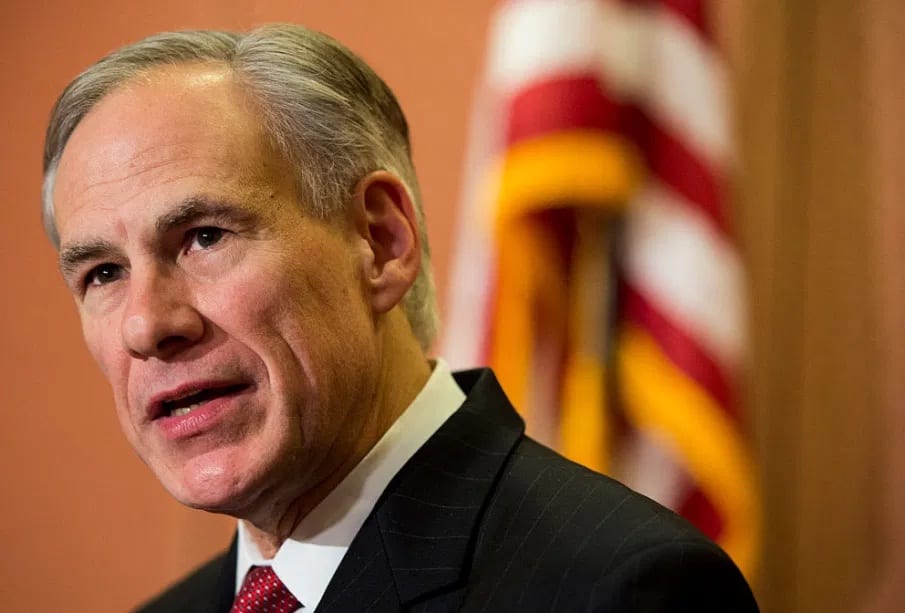In a press conference on Tuesday, Gov. Greg Abbott signed four bills into law that he said would penalize rioting and stop cities from defunding the police.
“In Texas we support the men and women in law enforcement,” Abbott said. “We don’t demonize or defund them.”
In addition to signing the bills, just last week, Abbott vowed to defund any cities who even tried to change their police department budget.
All four bills use language to target larger counties and cities, specifically Democratic leaning areas like Houston, Dallas and Austin.
HB 9 will make it a state jail felony for anyone who knowingly and recklessly blocks emergency vehicles during demonstrations. This bill would also require that person to serve no less than 10 days in the county jail.
HB 1900 would defund municipalities under 250,000 residents who try to reallocate or decrease the police department’s budget. In this bill, cities will not be able to raise property taxes revenue and lose their annexation power for up to 10 years. It also allows Texas to withhold sales taxes from that city and use them for the Texas Department of Public Safety. This bill was written in response to Austin City Council voting to defund one-third of their cities police budget last year.
Senate Bill 23 requires counties with over one million residents to have voter approval before reallocating money from their police departments.
HB 2366 addresses the unlawful use of fireworks and clarifies that if a person uses fireworks to interfere with officers or flee the scene using a firework, they will receive a class C misdemeanor.
Executive Director of Combined Law Enforcement Associations of Texas Charley Wilkison said “backing the blue” became a Republican rallying cry after the Black Lives Matter sparked a conversation on defunding the police.
Wilkison said the major metropolitan areas that are reimagining police need to look at the policies and training that are already in place instead of blaming individual officers.
“Guess who recruited all the policemen in Texas, the cities, guess who trained them, hired them and retrained them, the cities,” Wilkison said. “So the cities are not going to be able to turn around and blame police officers for doing what they told them to do, but that’s what they’ve done.”
According to Wilkinson, the problems in police departments start at the top with local officials.
“A lot of the problems in law enforcement in Texas come from mayors, and city council members and police chiefs who don’t want to own up to the fact that they’re not doing a good enough job in taking care of the training side of law enforcement so they blame the individual police officer who is a shift worker.”
In addition to better training policies, Wilkison said he believes officers should get even more training that fits the modern age.
“I think there needs to be a lot more training. I think academies that train officers ought train twice as long, especially in the next decade,” Wilikison said.
Wilkison also said that it’s a myth that officers can do whatever they want.
“They don’t have unqualified immunity, they only have a very small amount of immunity,” Wilkison said. “We have officers that lose property all the time in Texas because they went outside the bounds of the law. It’s a lie that officers can do whatever they want any time they want.”
Austin City Council Member for District 4 Greg Casar said HB 1900 and others punish cities who are trying to reform their police departments.
“It’s really just a bill that is really trying to hurt cities that are trying to respond to the movement for black lives, ” Casar said. “I dont think they’re actually going to deter the movement or stop us. We have to keep marching on, but it’s just another example of state leaders not listening to the cries of everyday people.”
Casar also said reimagining the police department is more than just improving training.
“We can work together on better police training. We can work together on what the right level of funding is for police,” Casar said. “But what this bill does is has the state try to come in and micromanage cities’ police budgets in a really punitive and thoughtless way.”
For Austin, Casar said a reimagined police department is working toward ending racial disparities in communities and bringing in resources for their constituents.
“It’s so that we no longer have police officers be the people that have to address addiction or mental health,” Casar said. “You can’t arrest away addiction, you need to treat it with care. You can’t arrest away homelessness, you have to fix that with housing and services.”
Just Liberty Policy Coordinator Kathy Mitchell said these bills are a long standing attack on Democratic controlled cities.
“Ideally republicans would like to strip these cities of their tax base in order to throw them into an impossible situation,” Mitchell said. “Where they can’t manage the needs of the residents on the taxes they are able to collect.”
According to Mitchell, this is Abbott’s attempt to micromanage locally elected officials and their city budgets.
“It’s not unusual for cities to decide to reduce that budget by a large amount because it’s the biggest chunk of the budget,” Mitchell said. “Cost cutting for the police department is not unknown.”
In terms of SB 23, Mitchell said this bill is directly related to “controversial” contracts with Harris County Constable Officers.
“This bill says that any reduction in a constables budget would constitute a county reduction and would have to go in front of voters,” Mitchell said. “So any constable that lost a contract for whatever reason would be considered a budget reduction.”
In February of 2020, Austin City Council voted to create an independent forensic division that would remove the lab from police oversight.
However, because of these new bills the city faces reversing that decision.
“Most people support the independent crime lab that is non-controversial at this point in history, but Austin doesn’t have the best practice that many cities take for granted because of Greg Abbott,” Mitchell said.
All these bills will take effect in September.
Photo: Bill Clark/CQ Roll Call
Kennedy is a recent graduate of the University of St.Thomas in Houston where she served as Editor-in-Chief of the Celt Independent. Kennedy brings her experience of writing about social justice issues to the Texas Signal where she serves as our Political Reporter. She does everything from covering crime beats, Texas politics, and community activism. Kennedy is a passionate reporter, avid reader, coffee enthusiast, and loves to travel.





